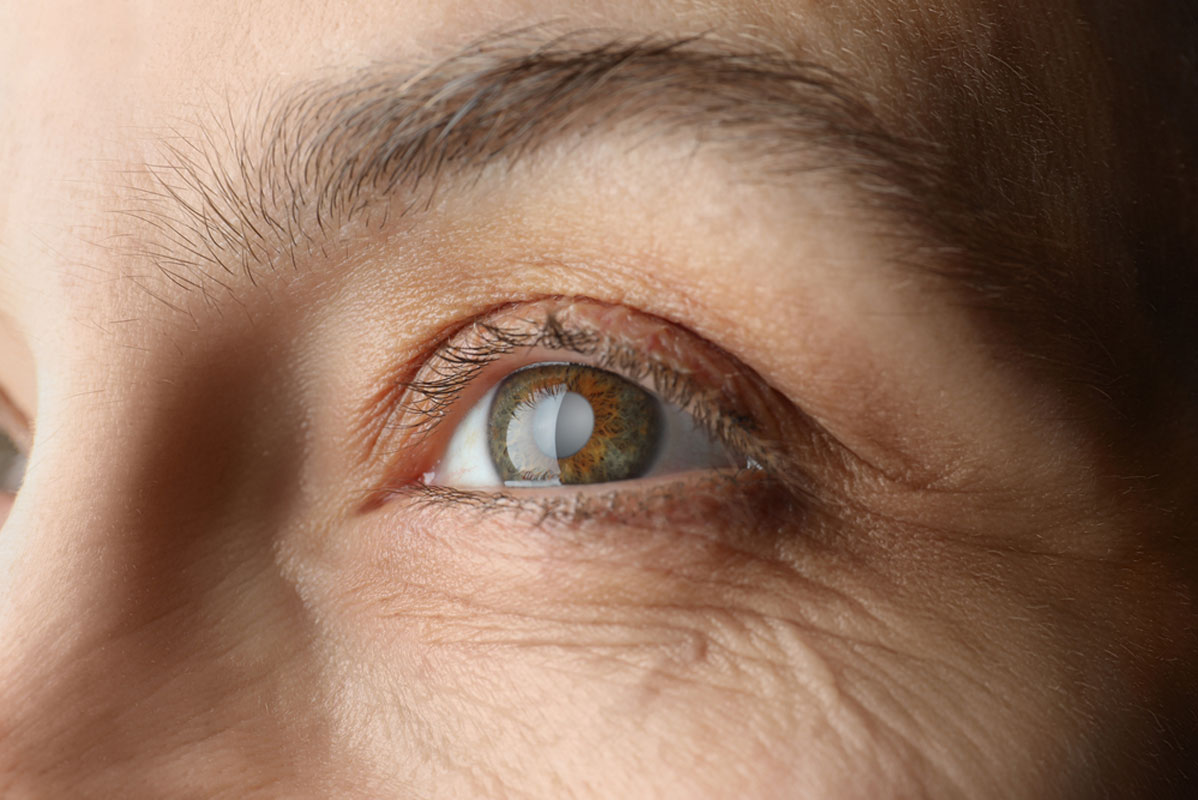Femtosecond Laser-Assisted Cataract Surgery (FLACS)
our services
What Is Femtosecond Laser Cataract Surgery?
Femtosecond laser cataract surgery is an advanced method to removing cataracts. It employs a femtosecond laser to create precise corneal incisions, shape the capsulotomy, and fragment the cataract before removal.
Unlike traditional cataract surgery, which relies on manual incisions with a surgical knife, laser-assisted surgery allows for the bladeless removal of cataracts. By minimising reliance on handheld instruments, laser-assisted surgery offers enhanced accuracy and reduced risks, resulting in a more controlled and predictable outcome.

Advantages of Bladeless Cataract Surgery
While traditional cataract surgery is also very safe with high success rates, femtosecond laser surgery – or bladeless cataract surgery – offers benefits such as:
- Precision and Accuracy – Bladeless cataract surgery uses advanced imaging techniques to tailor the incisions to each patient’s eye anatomy. This ensures precise incisions and reduces the risk of human error.
- Reduced Risk of Complications – Laser surgery reduces the need for multiple surgical instruments including scalpels, reducing the risk of complications.
- Quicker Recovery Time – Incisions from femtosecond lasers often close on their own, reducing the risk of complications and promoting faster healing.
- Improved Visual Outcomes – Femtosecond laser technology fragments even dense cataracts, ensuring a more complete removal. Furthermore, the precision of the laser-created capsule hole contributes to a more stable replacement lens.
Who Is Suitable for Femtosecond Laser Cataract Surgery?
While femtosecond laser surgery is suitable for most patients with cataracts, it may not be suitable nor necessary for everyone. Factors to consider include the patient’s eye anatomy, type of cataract, and other factors. Candidates should have relatively healthy corneas, normal eye pressure, and no severe eye conditions, such as advanced glaucoma or uncontrolled retinal diseases.
To better assess your eligibility for the procedure, please consult our ophthalmologists today at 6266 2088 to schedule an appointment.
How to Prepare for Femtosecond Laser Cataract Surgery
If you are deemed eligible for femtosecond cataract surgery, your ophthalmologist will evaluate your eye anatomy and take detailed measurements to plan the treatment. Our specialists will also discuss your intraocular lens (IOL) options and help you select the best lens to match your needs. Additionally, you will be given specific pre-op instructions to minimise risks during the procedure.
What to Expect During Femtosecond Laser Cataract Surgery
Femtosecond laser cataract surgery is typically done on an outpatient basis. During the procedure, local anaesthesia will be given to ensure patient comfort. Afterwards, a corneal incision will be made using a programmed laser technology. The laser will then create a highly precise opening in the capsule bag (capsulotomy) to allow access to the clouded lens. Then, the cataracts will be fragmented into small pieces and removed. Finally, the IOL will be implanted. The entire procedure can take around 20-30 minutes to complete.
What Happens After Laser Cataract Surgery?
After the procedure, you will be sent to a recovery area for about an hour for monitoring before being
cleared for discharge. Your ophthalmologist will give you an eye patch or protective shield to protect
your eyes as you recover. Additionally, eye drops or other medications will be provided to prevent
infection, control eye pressure, and reduce inflammation. It is common to experience blurry vision,
itching, and mild discomfort for a few days after the procedure. Most patients can see clearly within
1-2 weeks, although full recovery may take around 2-3 months.
Follow-up appointments are crucial to monitor your recovery. Your ophthalmologist will schedule
post-surgical check-ups to ensure that you are recovering well.
Are There Risks Associated with Laser Cataract Surgery?
Though generally deemed safe, laser-assisted cataract surgery may carry the similar risks as traditional surgical methods, such as infection, bleeding, and inflammation. Nonetheless, the highly precise nature of the procedure could sometimes mean that there is a reduced likelihood of certain complications compared to manual techniques.
Why Choose Our Clinic for Laser Cataract Surgery?
At Lumin Eye Specialists, Dr Don Pek and Dr Clarissa Cheng is skilled in performing the femtosecond laser procedure for eligible patients, ensuring a high level of precision and safety. With a commitment to comfort and convenience, we use advanced equipment and tailor each treatment plan for optimal outcomes.
Besides the laser option, we also provide conventional cataract surgery, which is also a safe and effective way to treat cataracts.
Please speak to us at 6266 2088 today to find out the best option for you.
